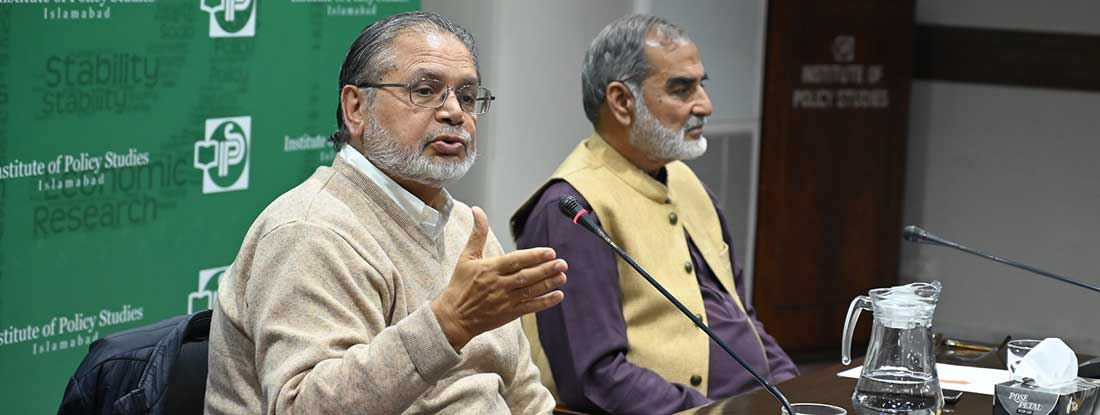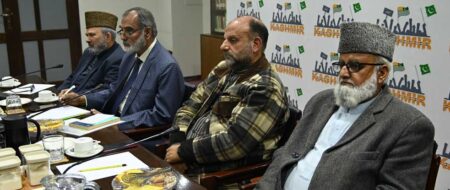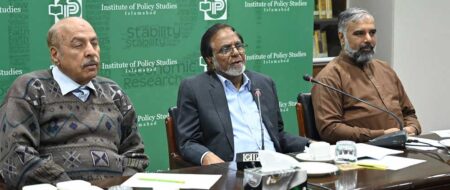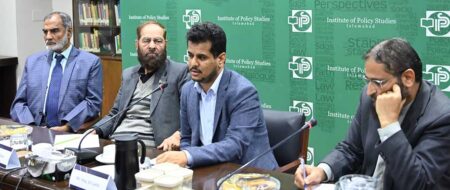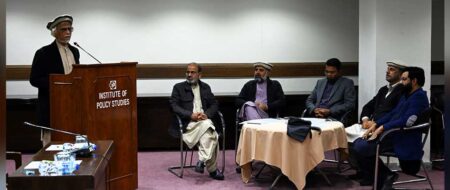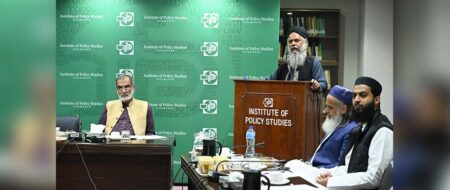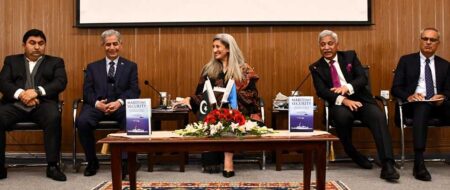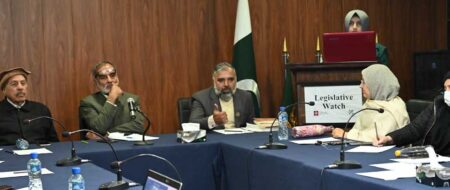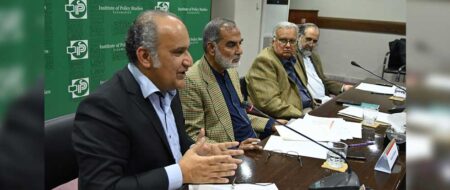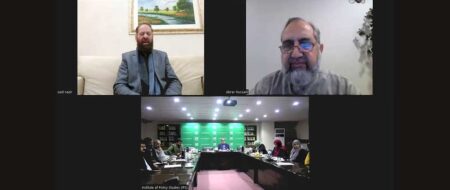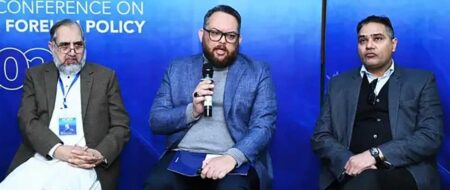‘Gaza, Emerging World Order, and American Politics’
Muslim activism in the US gaining strength in the wake of Gaza conflict
There has been a remarkable upsurge in activism among the Muslim population in the US following the Israeli aggression against Gaza, specifically in efforts to raise awareness and support for the Palestinian cause. The conflict has ignited a strong sense of urgency and unity among the Muslims, and, as a result, their voices are increasingly being heard, which has strengthened the community. This is also evident in the display of solidarity of the general American public towards Muslims in support of this cause.
This emerged during a discussion titled ‘Gaza, Emerging World Order, and American Politics’ by Dr Zahid Bukhari, Pakistani American political analyst and former director, American Muslim Studies Program at Georgetown University, Washington D.C. The session held on January 12, 2024 was hosted by the Institute of Policy Studies (IPS), and also joined by Khalid Rahman, chairman IPS, Ambassador (r) Syed Abrar Hussain, vice chairman IPS, and Dr Fakhr-ul-Islam, Advisor, Research & Academic Outreach IPS.
Dr Bukhari observed that the rise in activism is a continuation of the American-Muslim community’s efforts to put across their point of view in the years following the 9/11 events. However, what is striking is that the current movement is not confined solely to the Muslim population; it has garnered widespread support from the American public, who are increasingly aligning themselves with the cause of Gaza.
He said that while the older generation, particularly those who affiliate with the Republican Party, may lean towards supporting Israel, there has been a noticeable shift in opinion among the younger generation, including some Democrats, whose perceptions about the Palestine issue have changed.
Moreover, the media is showing perceptible switches in its stance regarding Muslims and the Israel-Palestine issue. In this regard, Dr Bukhari elaborated on the shifting perspective of certain media organizations that have subtly altered their coverage to include the Palestinian narrative, something unthinkable sometime back.
Dr Bukhari said this change is not only occurring in the media landscape but also in the state of the world order, which is undergoing substantial transformations. He emphasized the prevalent belief that, despite America’s considerable soft power, there is a perceived decline in its influence through hard power. Although the US retains its status as a superpower, it is vital to acknowledge the emergence of other influential nations. Consequently, there is a growing debate about whether America’s dominant role will persist or be overtaken by another country. He pointed out that China and other nations are steadily gaining strength and influence and are emerging as potential competitors.
Dr Bukhari said these changing power dynamics, combined with the ongoing clash of opinions between the American general population and the government, have the significant potential to impact the US sociopolitical conditions. He added that this poses a daunting challenge for the US government to navigate the changing environment.
Supporting Dr Bukhari’s observations, Khalid Rahman emphasized that despite the perception of America’s diminishing influence, it still has a considerable role in shaping global public opinion. He noted that while there is a shift in power dynamics, the period of transition is gradual, which is a crucial factor to consider in understanding the complex interplay of forces impacting the world order.


